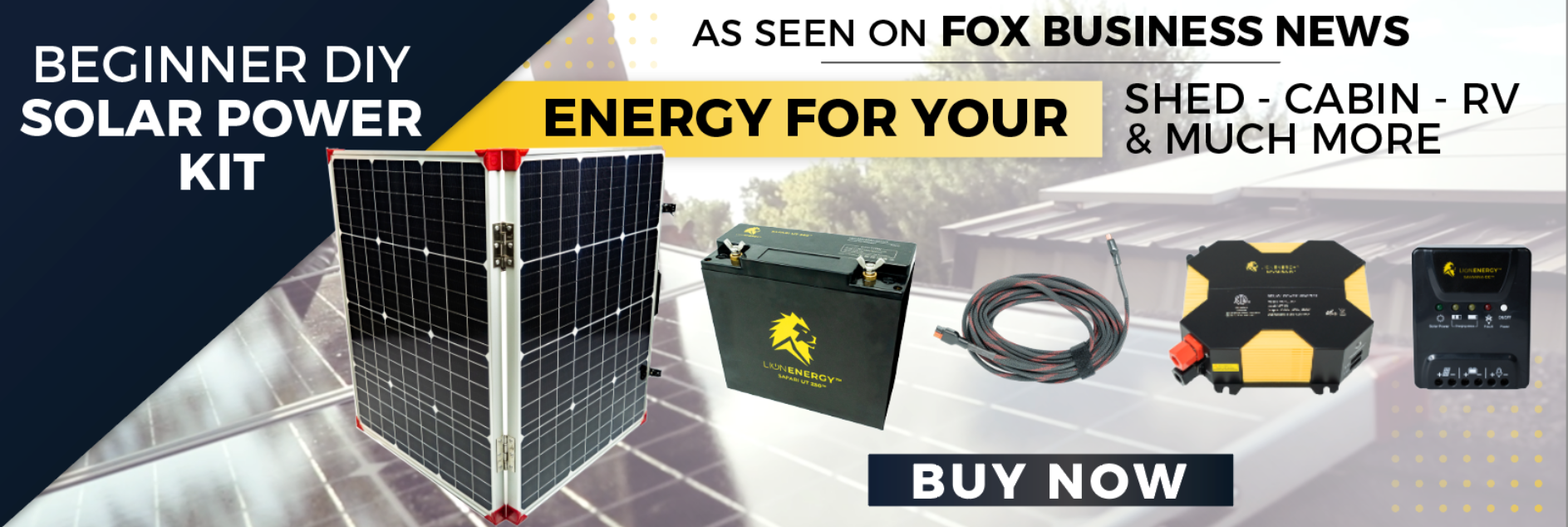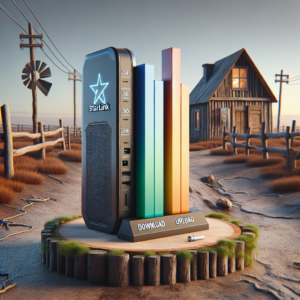
When you’re miles away from the nearest power line, the sun is your steadfast ally. Embracing solar power for your off-grid adventure isn’t just about being eco-friendly; it’s about claiming independence. The heart of this independence is a reliable off-grid solar generator, but choosing one can feel like navigating a maze without a map. Let’s shed some light on that path.
Harness Solar Power: Selecting an Off-Grid Generator
Assessing Your Power Needs
Imagine your off-grid home as a living, breathing entity. It has needs, just like you do. Before you even think about solar generators, you need to understand how much energy your home consumes. Start by listing every appliance and device that requires power. Think about how often you use them and for how long. This isn’t just about keeping the lights on; it’s about ensuring your home thrives.
Understanding Solar Generator Capacities
Solar generators come in various shapes and sizes, each with a different capacity to store and deliver power. Think of capacity like a water tank; the bigger it is, the more it holds. But there’s a twist – you need to match your consumption with the generator’s output, measured in watts. A mismatch could leave you in the dark or with an unnecessarily hefty price tag.
Here’s the key: look for a generator that can handle your peak power demands – that’s the maximum power you’ll use at any one time. Then, check the continuous rating, which tells you how much power it can deliver over an extended period. It’s a delicate balance, but getting it right means your generator won’t break a sweat when you need it most.
Battery Life and Recharge Times
-
Battery capacity is measured in watt-hours or kilowatt-hours – it’s the fuel tank of your solar generator.
-
Recharge time is crucial; it tells you how quickly your generator’s battery can go from empty to full with sunlight.
-
Look for lithium batteries – they’re lighter, have a longer lifespan, and offer more charge cycles than lead-acid counterparts.
-
Consider the depth of discharge (DoD) – it’s how much of the battery you can use before needing a recharge. Higher DoD means more usable energy.
-
Remember, battery life isn’t infinite. Check the warranty and expect to replace it every few years, depending on usage.
Choosing a solar generator with a robust battery system is like picking a marathon runner for your team – it ensures endurance and reliability when you need it most.
Portability and Durability Concerns
Off-grid life can be rugged, and so must be your solar generator. If you’re the kind to move around, portability is your priority. Look for a generator that strikes a balance between power capacity and ease of movement. Durable handles, rugged casing, and a compact design can make all the difference.
But don’t let portability overshadow durability. Your generator should withstand the whims of Mother Nature. Inspect the build quality, weather resistance, and read reviews from other off-gridders. After all, a solar generator is an investment in your peace of mind.
Staying Connected: Finding the Right Wifi Router
Connectivity is no longer a luxury; it’s a necessity, even off-grid. A wifi router that works harmoniously with your solar generator is like the neural network of your homestead, keeping you linked to the rest of the world. But how do you choose a router that won’t leave you buffering in the boondocks?
Stay tuned as we dive into the essentials of selecting a wifi router that meets the demands of off-grid living, ensuring you stay connected no matter where you plant your roots.
Router Capabilities and Off-Grid Compatibility
Selecting a router for off-grid living is like choosing the right companion for a long journey; it needs to be compatible with your lifestyle. The router must be able to handle the unique challenges of remote locations. This means it should easily link up with satellite internet services or long-range Wi-Fi solutions designed for rural areas. Look for routers that can operate on low power and have the ability to connect to alternative internet services like LTE if needed.
Power Consumption: Routers for Solar Systems
Every watt counts when you’re off the grid. Your Wi-Fi router should sip power, not guzzle it. Check the router’s specifications for its power requirements, usually listed in watts. The lower the number, the less strain on your solar generator. Some routers are designed with energy efficiency in mind, offering features like power-saving modes that reduce energy consumption when not in active use.
-
Energy-efficient routers can make a significant difference in daily power usage.
-
Consider routers with built-in power-saving features or programmable on/off schedules.
-
Don’t forget to factor in the power needs of any additional network equipment, like range extenders or mesh network nodes.
Range and Signal Strength in Remote Areas
When your nearest neighbor is a mile away, a strong Wi-Fi signal is non-negotiable. The router you choose must be capable of broadcasting a robust signal across your property. Look for high-gain antennas and the ability to add external antennas if necessary. Some routers are specifically designed to maximize range, perfect for spreading Wi-Fi across wide open spaces without compromising on speed or stability.
-
High-gain antennas can help extend the Wi-Fi signal range.
-
Mesh network systems can be a game-changer for large properties, creating a seamless network blanket.
-
Consider the landscape – hills, trees, and buildings can impact signal strength.
Weather Resistance and Rugged Design
Your router might not be outdoors, but in an off-grid environment, it’s bound to face some environmental challenges. Dust, moisture, and fluctuating temperatures can test the limits of any electronic device. Seek out routers with a track record of reliability under tough conditions. Some routers come with hardened exteriors and advanced cooling systems to prevent overheating, ensuring they keep you connected through thick and thin.
-
Durable routers with robust casings protect against dust and moisture.
-
Advanced cooling systems prevent overheating in high-temperature environments.
-
Look for routers with a proven track record in similar off-grid or industrial settings.

Combining Technologies for Independence
Independence off the grid doesn’t mean isolation. By combining a solar generator with a resilient Wi-Fi router, you create a synergy that powers not just your home, but also your connection to the world. This fusion of technologies ensures that you can enjoy the tranquility of remote living without sacrificing the comforts and conveniences of modern connectivity.
Integrating Solar Generators With Wifi Systems
Integrating your solar generator with your Wi-Fi system should be seamless. The key is to ensure that the power output of your generator matches the energy needs of your router and any other connected devices. Use a power management system to monitor usage and make adjustments as needed. This way, your solar generator and Wi-Fi router work together like a well-oiled machine, providing consistent power and connectivity.
-
Use a power management system to monitor and adjust energy usage.
-
Match the solar generator’s output with the router’s power needs for optimal efficiency.
-
Consider the use of energy monitors to track the power consumption of your Wi-Fi system.
Solar Powered Routers: What to Look For
When shopping for a solar-powered router, it’s like picking the right seed for your garden; you want one that will thrive in your environment. Look for routers with low power requirements that match your solar generator’s output. An integrated battery backup can be a lifesaver, keeping you online even when the sun takes a break. And don’t overlook the ease of setup – you want to be up and running without needing a degree in tech wizardry.
-
Low power consumption to maximize compatibility with your solar setup.
-
Battery backup to ensure continuous operation during periods of low sunlight.
-
User-friendly setup process for hassle-free installation.
-
Robust security features to protect your off-grid network from threats.
-
Flexible connectivity options to support various devices and services.
Making the Purchase: Smart Shopping for Off-Grid Tech
How to Evaluate and Compare Products
Think of evaluating off-grid tech like tasting apples; you’re looking for the one that’s just right. Start by comparing the specs – does it meet your power and connectivity needs? Then, dig into user reviews and see what others are saying. These are the stories from the orchard, telling you which tech stands the test of time and which falls from the tree. And remember, the most expensive option isn’t always the best – value for money is the name of the game.
Where to Buy: Retailers and Online Marketplaces
Where you buy your off-grid tech can be as important as what you buy. Local retailers can offer hands-on advice and support, but online marketplaces often have a wider selection and better deals. Check out specialty stores that focus on solar and off-grid products – they speak your language. And don’t forget to compare prices and check for sales or discounts; a penny saved is a penny that can be invested back into your off-grid paradise.
-
Local retailers for personalized service and immediate support.
-
Online marketplaces for competitive pricing and a broad selection.
-
Specialty stores that understand the nuances of off-grid living.
-
Look for sales, discounts, and bundle deals to stretch your budget further.
Product Warranties and Return Policies
Warranties and return policies are your safety net, ensuring that if your tech doesn’t perform, you’re not left in the lurch. A solid warranty can be the difference between a minor hiccup and a major headache. Look for products with a warranty of at least one year, and read the fine print on return policies – some companies are more generous than others. It’s like an insurance policy for your off-grid tech, and it’s worth every penny.
-
Seek out warranties of one year or longer for peace of mind.
-
Understand the return policy details, including time frames and conditions.
-
Check if the warranty covers battery life for solar generators and routers.
-
Consider extended warranties or insurance for added protection.
Maintaining Your Off-Grid Setup

Just like a garden, your off-grid setup needs regular tending. Keep your solar panels clean and free from debris to ensure they’re soaking up every ray of sunshine. Check your battery connections, keep an eye on charge levels, and don’t let them dip too low. For your router, keep the firmware updated to fend off any digital pests. Regular maintenance isn’t just about longevity; it’s about living off-grid with confidence.
-
Clean solar panels regularly to maintain optimal efficiency.
-
Monitor battery health and charge levels to prevent long-term damage.
-
Update router firmware to ensure security and performance.
-
Inspect cables and connections for wear and tear to prevent power loss.
Remember, a well-maintained off-grid setup is a happy one. By staying on top of these tasks, you ensure your system runs smoothly, keeping you powered and connected for years to come.
Regular Maintenance Tips for Solar Generators
To keep your solar generator in top shape, think of it as part of your family. Just like any family member, it needs regular check-ups and a clean environment. Ensure the solar panels are free from dust and debris, which can block sunlight and reduce efficiency. Check the battery connections for corrosion and tightness, as loose connections can lead to power loss. Keep an eye on the charge levels, too; regularly deep-discharging batteries can shorten their lifespan.
-
Clean solar panels with a soft cloth and soapy water to remove any buildup.
-
Inspect battery terminals for corrosion and clean them with a brush if needed.
-
Keep the generator’s firmware updated to take advantage of efficiency improvements.
-
Store your generator in a cool, dry place to prevent temperature-related wear.
-
Test the system regularly to ensure it’s ready for use when you need it.
Troubleshooting Common Router Issues
Even the most reliable routers can have an off day. If you’re experiencing issues with your connection, start with the basics: check if the router is powered and the cables are firmly connected. Sometimes, a simple restart can clear up any hiccups. If you’re still offline, look at the router’s settings. Is it configured correctly for your network? Are there any firmware updates available? Keep in mind, routers can be sensitive to interference, so keep them away from large metal objects and appliances that can disrupt the signal.
-
Restart your router to resolve temporary glitches or connectivity issues.
-
Ensure the router’s firmware is up to date for optimal performance and security.
-
Reposition your router to avoid signal interference from walls and metal objects.
-
Check for signal overlap if you’re in an area with many networks and change your Wi-Fi channel if necessary.
-
If all else fails, a factory reset can often return the router to a working state, but remember to back up your settings first.
Key Takeaways
Choosing the right off-grid solar generator and Wi-Fi router is about understanding your needs and finding the right balance of power, durability, and efficiency. Regular maintenance is crucial for longevity, and knowing how to troubleshoot common issues will keep you connected. Embrace the freedom of off-grid living with confidence, knowing you’ve made informed decisions to power your world.
-
Assess your power needs and choose a solar generator with the right capacity and battery life.
-
Select a Wi-Fi router that’s energy-efficient and has a strong signal range for remote areas.
-
Maintain your solar generator and troubleshoot your router to ensure a smooth off-grid experience.
-
Stay informed and prepared to tackle any challenges that come your way.
-
Enjoy the independence and connection that come with a well-planned off-grid setup.
FAQ: Your Questions Answered
How do I calculate the amount of power I need for my off-grid setup?
Calculating your power needs is like planning for a long hike – you need to know what you’ll use along the way. Start by listing all your electrical devices and note their wattage. Add up the watts for everything you’ll use simultaneously to find your peak power requirement. Then, estimate how many hours you’ll use each device daily to calculate your total daily watt-hours. This will give you a clear picture of the solar generator capacity you’ll need to keep everything running smoothly.
Can I use a regular wifi router with a solar generator?
Absolutely, you can use a regular Wi-Fi router with a solar generator, but there’s a catch. The router should match the power output of your solar generator, and it should be energy-efficient to make the most of your solar power. Some routers are designed to be low-power or have eco-modes, which are ideal for off-grid setups. Just ensure the router can handle the energy fluctuations that are part and parcel of solar power.
What should I look for in a solar generator to ensure it’s powerful enough for my needs?
When scouting for a solar generator, you’re looking for a powerhouse that fits like a glove. It’s not just about the wattage; it’s about the harmony between your lifestyle and the generator’s features. Start by ensuring it meets your peak power needs, which we’ve already discussed. Then, dive into the inverter rating – this tells you the quality of power it delivers, crucial for sensitive electronics. Don’t forget about the battery’s capacity and its ability to deliver power over several cloudy days.
-
Peak power rating to cover the highest energy-consuming periods.
-
An inverter rating that ensures clean power for delicate gadgets.
-
Battery capacity that can sustain your needs through less sunny spells.
-
Expandability options, like additional battery packs or solar panels.
-
User-friendly interface for easy monitoring and control.
Is it possible to upgrade my solar generator or wifi router down the line?
Flexibility is key in an ever-evolving world, and your off-grid tech should be no different. Many solar generators allow for expansion – think of it as adding rooms to your house as your family grows. You can often add extra batteries or solar panels to increase capacity. As for your Wi-Fi router, technology advances quickly, so choosing a model that can receive firmware updates or supports add-on antennas can extend its useful life and improve performance over time.
-
Check if the solar generator allows for additional batteries or panels.
-
Choose routers that support firmware updates for new features and security.
-
Look for routers with detachable antennas for potential signal upgrades.
-
Consider modular solar generators for easier upgrades.
What maintenance is required to keep my off-grid setup running efficiently?
Just like a well-loved car, your off-grid setup needs regular tune-ups. For solar generators, this means keeping the panels clean and the batteries at a healthy charge level. Avoid letting your batteries drain completely – it’s like running a marathon on an empty stomach. For Wi-Fi routers, it’s all about updates and signal checks. Ensure your router’s firmware is current and that it’s positioned for optimal signal strength. A little TLC goes a long way in keeping your off-grid life smooth and uninterrupted.
-
Regularly clean solar panels to maximize energy absorption.
-
Maintain battery charge levels to prevent capacity loss over time.
-
Update your router’s firmware to keep it secure and functioning well.
-
Reposition your router periodically to ensure the best signal coverage.
Living off-grid is a journey, not just a destination. It’s about building a life that’s both sustainable and connected, powered by the sun and informed by the latest in technology. Whether it’s the hum of your solar generator or the beep of a received email, each is a reminder of the independence and connectivity you’ve cultivated. So, equip yourself with the knowledge to choose the right solar generator and Wi-Fi router, maintain them with care, and enjoy the fruits of your labor under the open sky.
Remember, the choices you make today will power your tomorrows. So choose wisely, maintain diligently, and live abundantly. Your off-grid paradise awaits, powered by the sun and connected to the world.
Key Takeaways
-
Ensure your solar generator has enough capacity and a quality inverter for your energy needs.
-
Opt for upgradable solar generators and Wi-Fi routers to future-proof your setup.
-
Perform regular maintenance on solar panels and batteries for longevity.
-
Keep your Wi-Fi router’s firmware updated and optimize its position for the best signal.
-
Embrace the off-grid lifestyle with confidence, knowing you’re well-prepared and connected.







